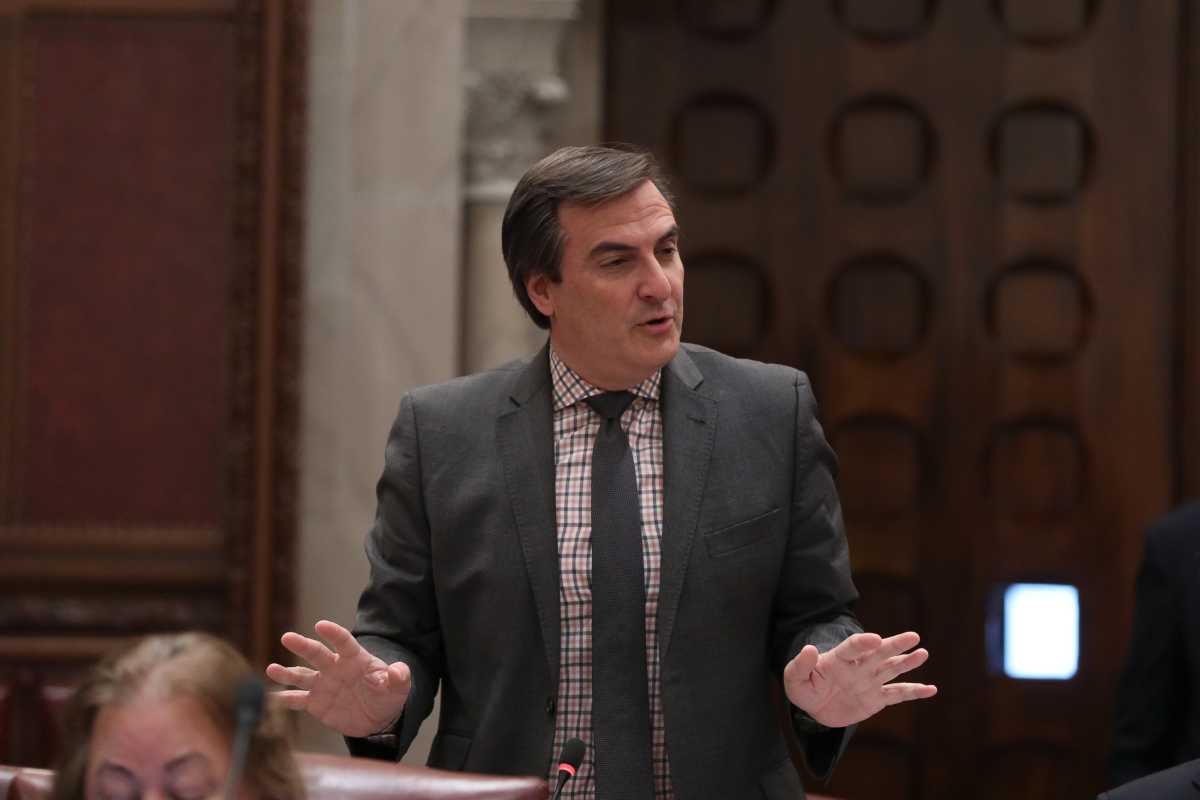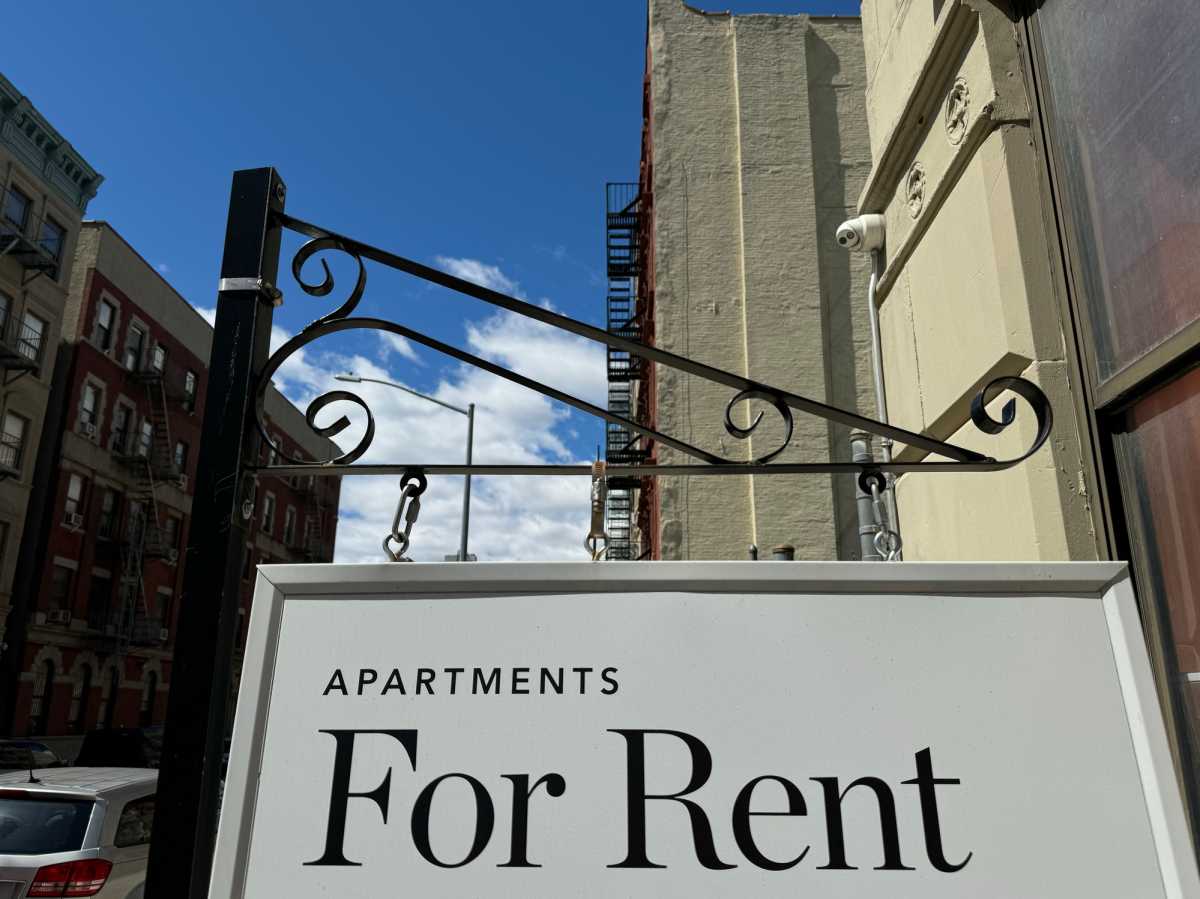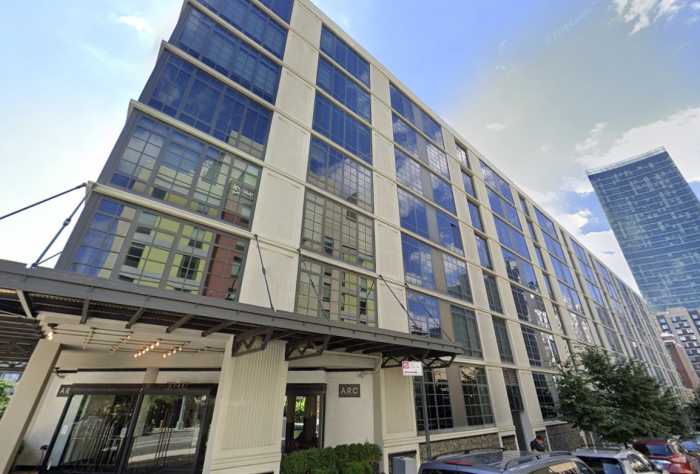State Sen. Michael Gianaris has joined Manhattan Assembly Member Linda Rosenthal to introduce legislation to reform the Rent Guidelines Board, the board that determines how much landlords can hike rents each year on the city’s nearly 1 million rent stabilized apartments.
Gianaris and Rosenthal are critical of the board noting that it has raised the rent by almost 10% in the past four years, with more increases anticipated this year. Given the increase, they have introduced legislation that would reshape New York City’s Rent Guidelines Board by requiring all appointees to receive City Council confirmation.
The Rent Guidelines Board consists of nine members solely appointed by the Mayor of New York City—a process both elected officials have described as ‘broken.'”
Last month, the NYC Rent Guidelines Board approved preliminary guidelines that would allow rent increases of between 1.75% and 4.75% for one-year leases and between 4.75% and 7.75% for two-year leases. The board voted again Tuesday to reduce the lower range for two-year leases from 4.75% to 3.75%.
The board is set to hold its final vote on June 30, with the increased rents to set to apply to rent stabilized units in the city starting Oct. 1. Each year, the NYC Rent Guidelines Board votes to determine the maximum amount that landlords can charge on rent-stabilized leases.
The board has approved a total of 9% increases for one-year leases over the past three years, drawing criticism from Gianaris and Rosenthal.

“Over the last four years we have seen the Rent Guidelines Board raise rents nearly 10% with more anticipated increases on the way this year,” Gianaris said in a statement.
Both Gianaris and Rosenthal stated that the current NYC Rent Guidelines Board, as well as municipal boards across the state, rely on metrics that “overestimate landlord costs while ignoring other relevant factors,” including landlord profitability and tenant affordability. They said this results in rent adjustments that skew disproportionately against low-income tenants.
Both elected officials noted that the NYC Rent Guidelines Board froze rents and kept annual increases at or below 1.5% during the de Blasio Administration. However, they also noted that the board has approved increases totaling almost 10% under the Adams Administration, stating that there is an “inconsistency” from administration to administration.
Gianaris and Rosenthal commented that this inconsistency “suggests a troubling lack of independence that could be improved by adding New York City Council oversight of appointees.”
Gianaris and Rosenthal’s legislation would also reduce the New York City board’s membership from nine members to seven, consisting of two members representing tenants, two members representing owners and three members of the general public. At present, the board features five members of the general public.
In a bid to “improve public engagement and accessibility,” the new legislation would also require the NYC Rent Guidelines Board to hold hearings in each of the five boroughs, and an additional hearing to accept virtual testimony. Currently, the NYC board is required to hold only one public hearing.
The new legislation additionally moves the board’s annual deadline from July 1 to November 1, and the “guidelines year” from October 1 to March 1.
Gianaris said the city cannot combat the housing crisis without making housing more affordable for tenants.
“We cannot appropriately tackle the affordability crisis without addressing one of the largest drivers of cost-of-living increases, which is the price of housing,” Gianaris said in a statement.
Rosenthal, meanwhile, said tenants are struggling to cope with the cost of housing in the city and said the proposed legislation would help deliver affordable housing to tenants across the city.
“Amidst an affordability crisis and at a time when federal safety net programs are increasingly unstable, tenants cannot continue to shoulder the burden of large rent increases. This new legislation will help to create a more balanced Rent Guidelines Board, ensuring that tenants’ needs are heard and addressed, particularly during an affordability and homelessness crisis,” Rosenthal said in a statement.
A number of housing advocates welcomed the legislation, including Cea Weaver, Coalition Director of Housing Justice for All, who stated that rent stabilization has helped keep New Yorkers in their homes for decades. However, she accused Rent Guidelines Boards of acting in the interests of real estate.
“Landlord profits go up while tenants are forced out of their neighborhoods,” Weaver said in a statement. “It’s time to democratize the Rent Guidelines Board. Tenants are the majority in New York — and we should get to decide what happens to our homes.”
Andrea Shapiro, Director of Programs and Advocacy at the Met Council on Housing, said the mayor currently has an “outside power” in the NYC Rent Guidelines Board process and said City Council confirmation hearings will help to “put a check” on that process.
NYC’s Rent Guidelines Board has yet to respond to a request for comment.


































